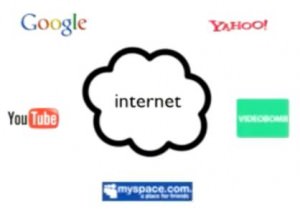What does Net Neutrality mean for Server Providers?
“Also, when you are choosing your internet service, you might notice that one of the features companies advertise is the download speed. However, be aware that this speed is the maximum or “optimal” speed and rarely will you ever get it.”
Saif Qureshi, Co-Senior Online Editor
The concept of new neutrality has been around for a while now but still it continues to garner continuous debate. Net neutrality is the principle that the internet and its applications should be free from interference or restrictions from service providers.
What it means is that a few people or applications should not be favoured over others. This concept is especially important for Internet Service Providers (ISPs), consumers, and other web-based companies– each of whom hold different and sometimes conflicting interests.
Examples of the type of practices that net neutrality tries to discourage include traffic shaping, bandwidth throttling, bit caps and IP blocking. Traffic shaping occurs when your ISP decides to limit certain website or applications that you want to run. For example, ISPs have been known to slow down applications such as Skype, as they are competition for their home phone or long distance services.
Pretty evil right? Well, both Bell and Rogers have admitted to traffic shaping. The reason that ISP’s give for traffic shaping is that a few users are using most of the bandwidth, which is slowing down the rest of the users.
ISPs also throttle peer-to-peer technologies such as Bit Torrent. Throttling is when an ISP slows down your internet connection. Because ISPs usually oversell their bandwidth – expecting that most people will be below the limit – they run into problems caused by a small group of people using more bandwidth than what is “normal”. As a result, ISPs intentionally reduce the internet speed of these users, even though they are paying for it.
In Canada, Bell has been known to throttle your internet from time to time. The reasons given to justify peer-to-peer throttling are that it must be done in order to dissuade some of the ‘heavier bandwidth users’ from hogging the bandwidth and consequently slowing the internet speeds down for the rest of users.
Also, when you are choosing your internet service, you might notice that one of the features companies advertise is the download speed. However, be aware that this speed is the maximum or “optimal” speed and rarely will you ever get it. In fact, ISPs may choose to give you even less than the advertised speed.
Bit caps, as you might have guessed, limit your internet usage. In the past few years, many companies such as Bell have reintroduced bit caps because there is much more demand for internet and not as much competition in the marketplace.
IP blocking occurs when your ISP purposely blocks you from visiting websites it doesn’t want you to see. Although blocking some sites may sometimes be required or even acceptable, there have been cases where ISPs have blatantly abused their powers. For example, during a 2005 union strike, TELUS prevented the union’s blog from being accessed.
Another example of an unfair practice that net neutrality tries to combat, and which should be of concern to us as consumers, is the attempt by some companies to implement a tiered service. The following video describes it best:
In Canada, the Canadian Radio and Telecommunications Commission (CRTC) is responsible for regulating business practices of ISPs. In 2009, it set out new rules suggesting that ISPs can still use traffic shaping and throttling to control its networks, but only as a last resort. Instead, they should focus more on economic measures such as investments in their infrastructure or usage limits to reduce network congestion.
Although a few rules have been implemented, consumer groups say that these rules don’t change anything and aren`t strong enough for companies to change their practices.
For a more detailed outline of CRTC`s stance, please visit their Telecom Regulatory Policy.
By Saif Qureshi, Co-Senior Online Editor
ARB Team
Arbitrage Magazine
Business News with BITE
Liked this post? Why not buy the ARB team a beer? Just click an ad or





























Share the post "What does Net Neutrality mean for Server Providers?"